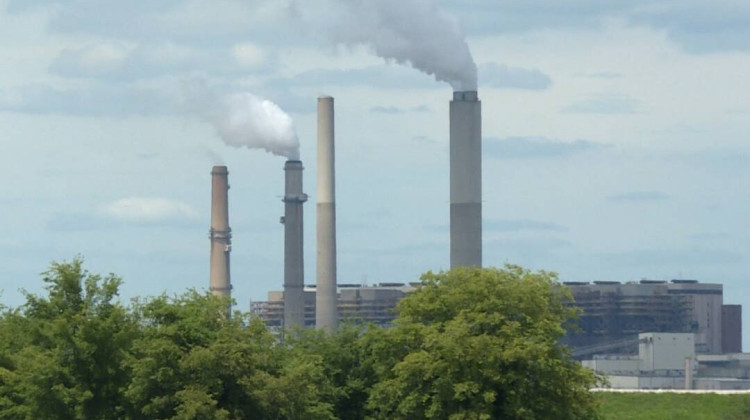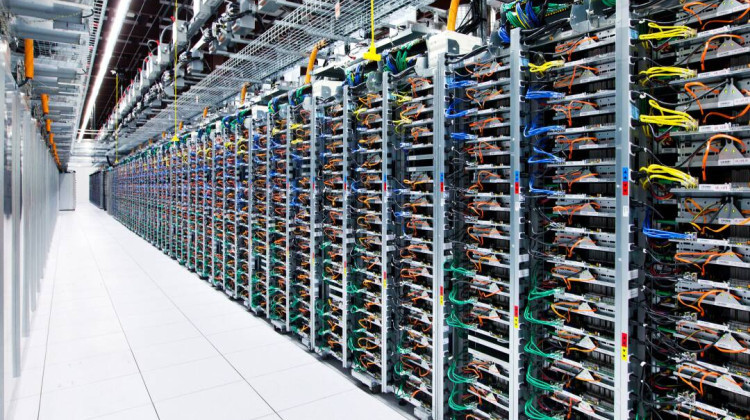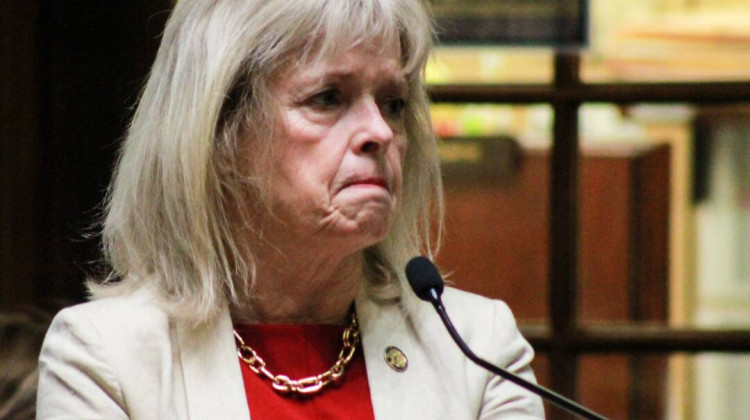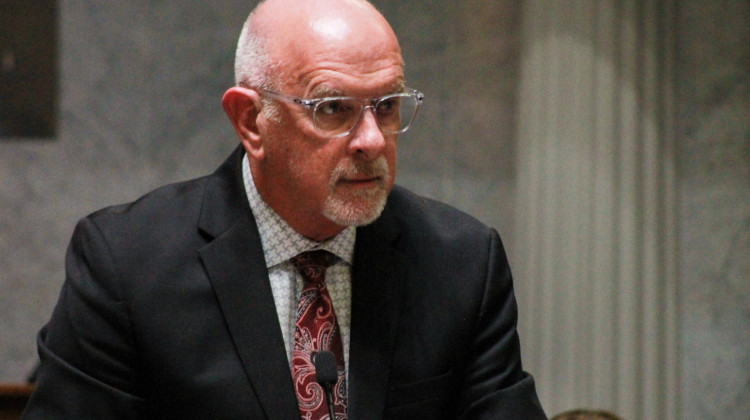
Four smoke stakes in the distance, one of which has smoke coming out of it.
Rebecca Thiele / IPB NewsPresident Trump this week sent out a series of executive orders propping up the coal industry and sidestepping the need for climate action. Now Indiana Gov. Mike Braun has signed similar orders.
One of the orders directs state energy regulators to look at every coal plant in the state and consider extending its life. It cites the need to meet the high energy demand for AI data centers.
READ MORE: AI data centers threaten to derail climate progress in Indiana.
Join the conversation and sign up for our weekly text group: the Indiana Two-Way. Your comments and questions help us find the answers you need on statewide issues, including our project Civically, Indiana and our 2025 bill tracker.
The order also asks them to assess the cost when coal plants retire early. Kerwin Olson with the Citizens Action Coalition said it's true that, in the short term, this can drive up customers' bills — as they pay for both the remaining cost of the old plant and new energy sources.
But in the long run, it saves customers money. Olson said just because these coal plants haven't been paid off, doesn't mean they should keep running.
"You might as well run that old Chevy Impala till it's in the ground, because you still owe the bank some money on that thing. Even though you as a consumer would still want to buy a more efficient, cleaner, more affordable car moving forward," he said.
The cost of maintaining and operating coal plants is what's led many utilities to turn to natural gas and renewables.
READ MORE: How does natural gas compare to other electricity sources in terms of cost, pollution?
Robyn Skuya-Boss directs the Hoosier chapter of the Sierra Club.
"Restricting utility energy plans that would reduce energy waste, drive innovation, and save customers money while improving air and water quality breaks faith with future generations depending on us making better choices at this moment. Governor Braun is failing Hoosier families being impacted by the pollution burning coal generates," Skuya-Boss said.
Creating the Nuclear Indiana Coalition
Another of Braun's orders creates a coalition to advance the development of nuclear energy in the state, particularly small modular nuclear reactors — something state lawmakers have been working on for years.
Braun recently signed a law to allow utilities to charge their customers for some of the costs of developing these plants, even if they never get finished.
So far, none of the ones in the U.S. have. One federally-funded project was canceled in 2023 after more than a decade of work and nearly $9 billion in costs.
Rejecting climate action plans and the "social cost" of carbon
The final order prevents state agencies from factoring the "social cost" of greenhouse gas emissions into what they do. Those costs put dollar amounts to the damages caused by climate change — like hospitalizations from asthma or property damage from flooding.
That order also prevents state agencies from implementing something like a carbon tax or otherwise charging for emissions.
It's unclear whether this would prevent Indiana from setting up a carbon credit market — which would allow farmers and other landowners to sell carbon offsets. Something Braun himself championed as a U.S. Senator.
The order also directs the state to reconsider its climate action plan by the end of the year.
The Indiana Department of Environmental Management refused to provide someone for an interview.
Rebecca is our energy and environment reporter. Contact her at rthiele@iu.edu or follow her on Twitter at @beckythiele.
 DONATE
DONATE






 Support WFYI. We can't do it without you.
Support WFYI. We can't do it without you.